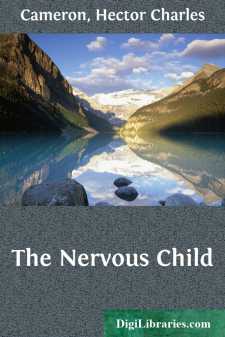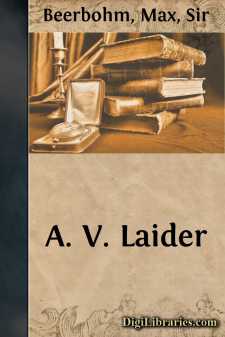Categories
- Antiques & Collectibles 13
- Architecture 36
- Art 48
- Bibles 22
- Biography & Autobiography 813
- Body, Mind & Spirit 142
- Business & Economics 28
- Children's Books 15
- Children's Fiction 12
- Computers 4
- Cooking 94
- Crafts & Hobbies 4
- Drama 346
- Education 46
- Family & Relationships 57
- Fiction 11828
- Games 19
- Gardening 17
- Health & Fitness 34
- History 1377
- House & Home 1
- Humor 147
- Juvenile Fiction 1873
- Juvenile Nonfiction 202
- Language Arts & Disciplines 88
- Law 16
- Literary Collections 686
- Literary Criticism 179
- Mathematics 13
- Medical 41
- Music 40
- Nature 179
- Non-Classifiable 1768
- Performing Arts 7
- Periodicals 1453
- Philosophy 64
- Photography 2
- Poetry 896
- Political Science 203
- Psychology 42
- Reference 154
- Religion 513
- Science 126
- Self-Help 84
- Social Science 81
- Sports & Recreation 34
- Study Aids 3
- Technology & Engineering 59
- Transportation 23
- Travel 463
- True Crime 29
The Nervous Child
Categories:
Description:
Excerpt
CHAPTER I
There is an old fairy story concerning a pea which a princess once slept upon—a little offending pea, a minute disturbance, a trifling departure from the normal which grew to the proportions of intolerable suffering because of the too sensitive and undisciplined nervous system of Her Royal Highness. The story, I think, does not tell us much else concerning the princess. It does not tell us, for instance, if she was an only child, the sole preoccupation of her parents and nurses, surrounded by the most anxious care, reared with some difficulty because of her extraordinary "delicacy," suffering from a variety of illnesses which somehow always seemed to puzzle the doctors, though some of the symptoms—the vomiting, for example, and the high temperature—were very severe and persistent. Nor does it tell us if later in life, but before the suffering from the pea arose, she had been taken to consult two famous doctors, one of whom had removed the vermiform appendix, while the other a little later had performed an operation for "adhesions." At any rate, the story with these later additions, which are at least in keeping with what we know of her history, would serve to indicate the importance which attaches to the early training of childhood. Among the children even of the well-to-do often enough the hygiene of the mind is overlooked, and faulty management produces restlessness, instability, and hyper-sensitiveness, which pass insensibly into neuropathy in adult life.
To prevent so distressing a result is our aim in the training of children. No doubt the matter concerns in the first place parents and nurses, school masters and mistresses, as well as medical men. Yet because of the certainty that physical disturbances of one sort or another will follow upon nervous unrest, it will seldom happen that medical advice will not be sought sooner or later; and if the physician is to intervene with success, he must be prepared with knowledge of many sorts. He must be prepared to make a thorough and complete physical examination, sufficient to exclude the presence of organic disease. If no organic disease is found, he must explore the whole environment of the child, and seek to determine whether the exciting cause is to be found in the reaction of the child to some form of faulty management.
For example, a child of two or three years of age may be brought to the doctor with the complaint that defæcation is painful, and that there has existed for some time a most distressing constipation which has resisted a large number of purgatives of increasing strength. Whenever the child is placed upon the stool, his crying at once begins, and no attempts to soothe or console him have been successful. It is not sufficient for the doctor in such a case to make an examination which convinces him that there is no fissure at the anus and no fistula or thrombosed pile, and to confine himself to saying that he can find nothing the matter. The crying and refusal to go to stool will continue after the visit as before, and the mother will be apt to conclude that her doctor, though she has the greatest confidence in him for the ailments of grown-up persons, is unskilled in, or at least not interested in, the diseases of little children....












